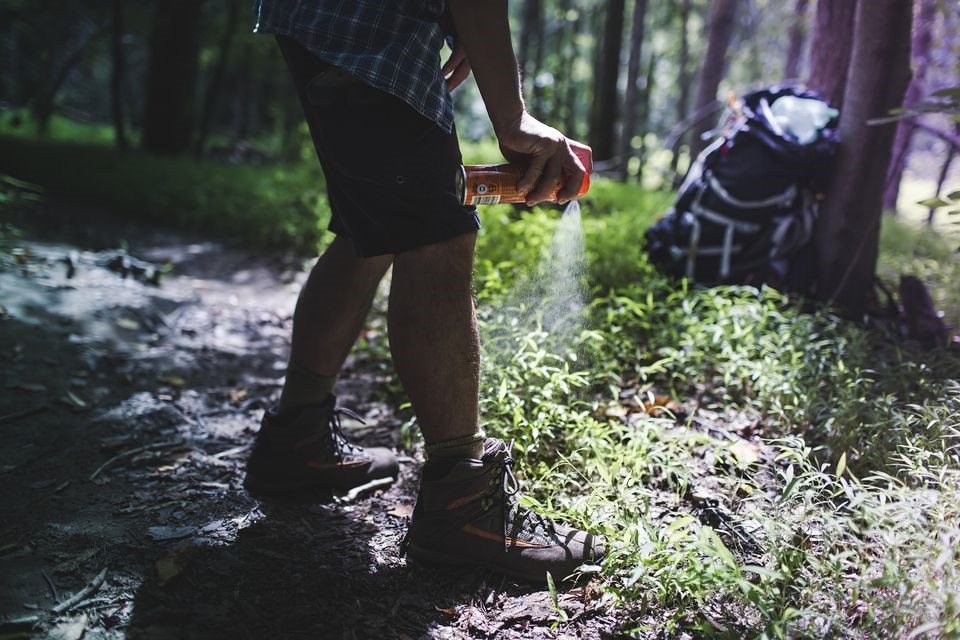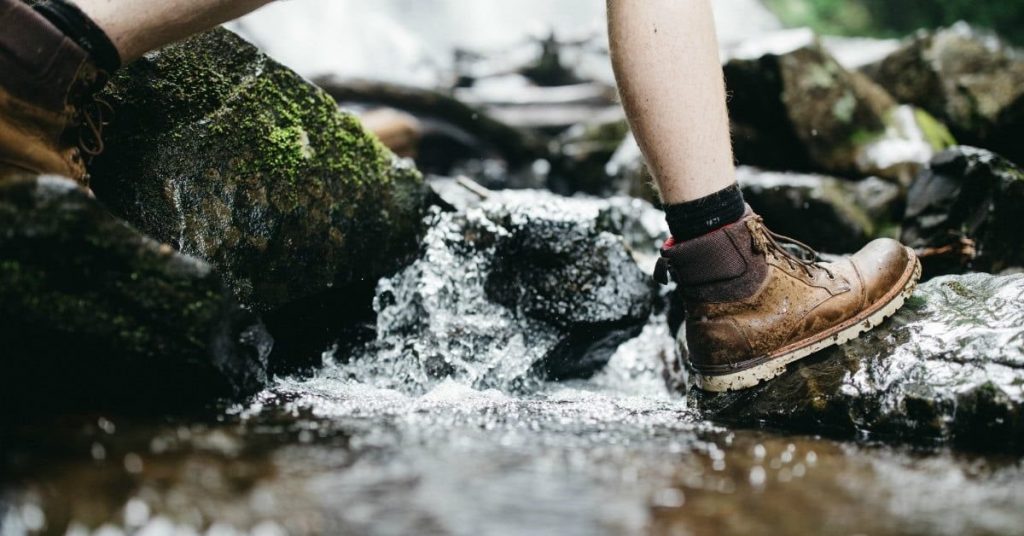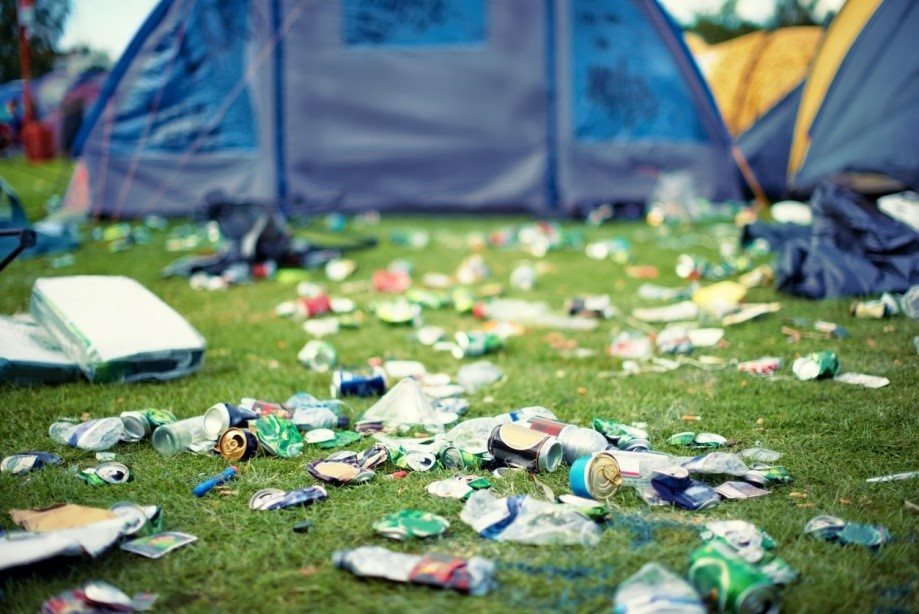We toiled for millions of years to get out of dangerous jungles and living under trees and whatnot. Still, our inner Homo-Sapiens yearn to be one with nature, with the birds and trees. No wonder we struck a perfect balance with camping. Camping comes with a lot of work, responsibilities, peace and entertainment. I began camping around 2006 and haven’t looked back since then. Well, except for the summer months when it does get unreasonably hot!
There is a lot to learn from camping. The independence (if you are camping alone), the precautions, the planning, and of course, the attire too! Naturally you need to be confident being alone for the time as well as be knowledgeable about the situations that might arise. You need to plan your steps well in advance and wear appropriate clothing like trekking t-shirts (I got mine from a Facebook friend who runs Swag Swami) that will blend beautifully with the surroundings (also might help you hide in risky situations). Further more, if you plan on getting some well deserved rest during your camping trip, you’ll need stuff like a chair, a hammock, a cot or a tent. Or all of them. It depends on your preferences.
Then there’s a list of unwritten camping rules. Let me list out some rules (more like camping must-dos and don’ts actually) that I have learned over the years.
Communication
This is an important advice you should always follow. Communication is key for camping and there are a lot of elements that go into it. You should always inform your loved ones about your plans, your camping site, the availability or unavailability of your mobile network. Your family or friends need to know about your itinerary. When I was out camping at Kheerganga in Himachal Pradesh (which is a good 15 km trek by the way), I realized that there was no network at the top of it. I had informed my mother about the route and the trek and because of that, she did not fret about me at all till I descended back into the network area the next day. Knowing my mother, she would have raised hell not being able to contact me; especially given that I was solo-camping.
Communication is also necessary between fellow campers and significantly the authorities if you are camping in an area prone to attracting wildlife. Or if the region is infamous for its confusing trails. There have been many instances of people getting lost in the wild and the Search and Rescue officers tracking down the person and saving them. I remember one such incident of my elder cousin brother who thought he would hike through the jungles of Kanha national park and camp there with his tent. My aunt got increasingly worried because he was supposed to camp only for a day and he did not call back the next day. Even his phone was switched off and my aunt contacted the authorities. Luckily, he had told them where he had planned to camp and the trail he would take so they dispatched a team to find him. They found him before sunset wandering around an entirely different route; lost and dehydrated. But at least they found him because he did not wander far off the campsite. Long story short, let people know where you go!
Medicines
This might be the important aspect of camping for health and overall survival. Be it first aid, bug sprays, antibiotics or even allergy medication. Each of them is significant in their own right. My knowledge of first aid has saved me in countless camping accidents ranging from normal knife scrapes to deep gashes and sprains. It is extremely important to practice first aid even before you start the camping activity in your life; as you cannot predict when you would need it. First aid also protects your wounds from becoming septic.
Bug sprays and lotions, especially against mosquitoes, are required in humid conditions. I was camping with my friends once when one of them actually used up an entire tube of Odomos (which is a bug repellent lotion) due to his fear of being bitten. We had to endure mosquito bites all night because of his panic! Bug sprays are also important against other bugs too; especially the ones who bite.
Here are some greats tips for campers:
Antibiotics/medicines and allergy medications span from normal common cold antibiotics to life-threatening asthma or peanut allergies. If you know that you have an allergy, it is better to take medicine for it because you would have no idea what could trigger it in the surroundings of your campsite. A fellow camper once told me a story of how his camping partner had pollen allergies and it got triggered by the strong presence of flowers near the campsite. Luckily, she had brought her medication and she could administer it on herself before things got too messy. It is good to take antibiotics so that you don’t catch a fever during your camping and you could safely make it back to your place without struggle.
Element-proof your belongings
Usually one only thinks of water as the main element that can spoil your camping experience. But fire is another hazard that has to be counted (and often more dangerous of the two).
There are ways to waterproof your belongings. I believe in the saying – Buy It – Bag It – Treat it. If you can buy waterproof items over normal essentials, try to get them. Think of them as an investment rather than spending more money than needed. Products are usually tagged with labels suggesting their waterproof nature and generally with their percentage of waterproof ability. I have been using my waterproof shoes for more than 2 years now! They are also more rugged and resistant to wear and tear compared to normal shoes. Also the waterproof ability comes in two types – water-resistant and waterproof. Make sure you buy waterproof ones if you plan to camp regularly. If you can’t buy waterproof garments and belongings, then you should bag them! Recyclable Ziploc plastic bags and normal garbage bags (also reusable) can be used to keep your stuff away from their early watery grave. Before loading up a backpack, you could line the inside of the pack with a large plastic bag and use it every time you camp. Ziploc bags are amazing when it comes to keeping electronic equipment like mobile phones, watches, Fitbit etc. away from moisture. These will also protect your possessions from unprecedented rain or accidental plummeting into a water body. The third solution is to treat your goods. If you already have your camping gear and they are not waterproof, you could get waterproof protection from a variety of solutions. These products come in spray or soak form and stay on for many uses before finally wearing off. This is a good way to keep your tent waterproof if you are reluctant to buy a new one.
Coming to the fireproof issues, the natural way would be to avoid carrying flammable substances with your as much as possible. That includes lighter fluids, candles, cleaning agents, alcohol etc. Make sure that if there are adjoining tents, they are at least six meters apart so that the fire does not spread. Always have a torch handy instead of a candle; especially in or near tents. Having knowledge of how to put out a fire is a must-have while camping.
Littering and Garbage Disposal
Under no circumstances should one litter while camping. Disposing off garbage is an important component of camping and is vital for preserving the environment. As you start using the items you have brought, you will start gathering garbage.
There are ways to dispose off garbage and a camper should know these. Most of the garbage can be and should be carried back to your house and thrown away in the normal manner. Garbage disposal needs pre-planning before you embark on the camping expedition. Leftover food should be secured in a sealable plastic bag even if you don’t plan to eat it afterwards. One might think that these are decomposable and can be thrown away. But, some food might not be good for wild animals and birds which may come by before it gets decomposed and they can easily get sick if they eat something that is not a part of their usual diet.
Make sure you have a different bag to keep waste wrappers and containers. Most of the wrappers are plastic in nature and are not easily decomposed at all. It is possible that a wild animal might be tricked into thinking about the wrapper as a food item (especially with the smell) and it may choke on it. Keep a different bag other than one for the food scraps.
Human waste also comes under littering. It is probably not possible to carry a plastic bag full of your waste but there are some precautions to be taken-for personal health not for environmental reasons. If you do have to urinate, make sure you do at least around 20-30 feet away from your campsite. Urine is a common statement in the animal kingdom for establishing territory and it is possible that an inquisitive wild animal might not be very friendly. Same goes for when you have to go number two. Make sure you bury it in a hole if possible so that animals are not attracted.
So these were my 4 rules while camping. These are pretty easy once you get accustomed to camping. Happy Camping!
[jbio template=”bootbomb0″]





0 comments